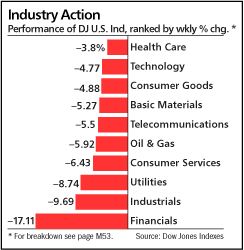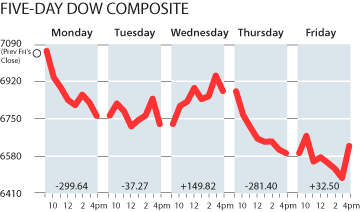Call the latest banks-inspired stock market selloff whatever you want, but don't call it a capitulation.
That's wishful thinking, according to many market pros, who say that despite Merrill Lynch's warning that banks are in capitulation and on their way to dividend cuts, the phenomenon hasn't spread to the larger market.
Capitulation is considered a point at which stocks are oversold and setting themselves up as bargains. That would be bad news in the short term as it would mean equities have fallen to perilously low levels, but good news in the long range in that it would signal a bottom and a point off which the market can rally.
Analysts and investment advisors say that a lack of sustained panic-selling indicates we're just not there yet despite Merrill's call on bank stocks, which have been the biggest weight on the broader market.
"I think capitulation's a strong word," says Brian Gendreau, investment strategist at ING Investment Management. "When you get a capitulation trade you get a feeling of total despair and darkness in the market where people just completely throw in the towel, and I don't see that at all."
One measure getting a lot of attention as the market heads toward testing new lows is the Chicago Board Options Exchange's Volatility Index which moved up sharply on Friday but remains well off the highs it generally shows during a market bottom. A reading above 20 in the VIX generally indicates substantial volatility, but the number typically has reached the 30s during times of market bottom like in 2002 and 2003.
As long as the VIX remains in the 20s, analysts see little reason to expect a bottom.
Subscribe to:
Post Comments (Atom)


No comments:
Post a Comment